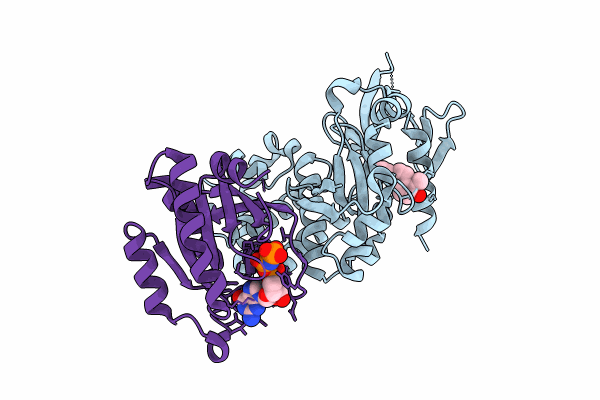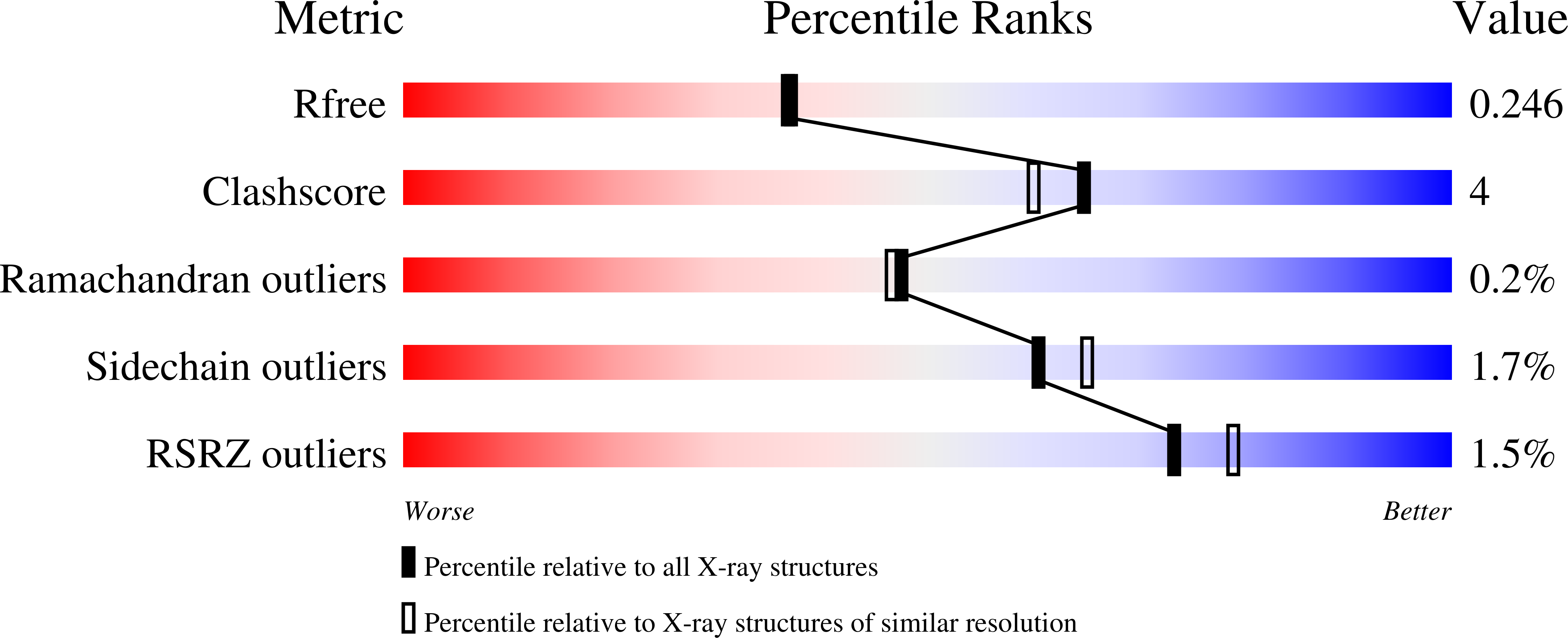
Deposition Date
2023-05-31
Release Date
2023-12-13
Last Version Date
2024-10-23
Entry Detail
PDB ID:
8T09
Keywords:
Title:
Co-crystal structure of KRIT1 with a 1-hydroxy 2-naphthaldehyde derivative (6-ethynyl-2-hydroxy-1-naphthaldehyde)
Biological Source:
Source Organism(s):
Homo sapiens (Taxon ID: 9606)
Expression System(s):
Method Details:
Experimental Method:
Resolution:
2.15 Å
R-Value Free:
0.24
R-Value Work:
0.20
R-Value Observed:
0.20
Space Group:
P 1 21 1


